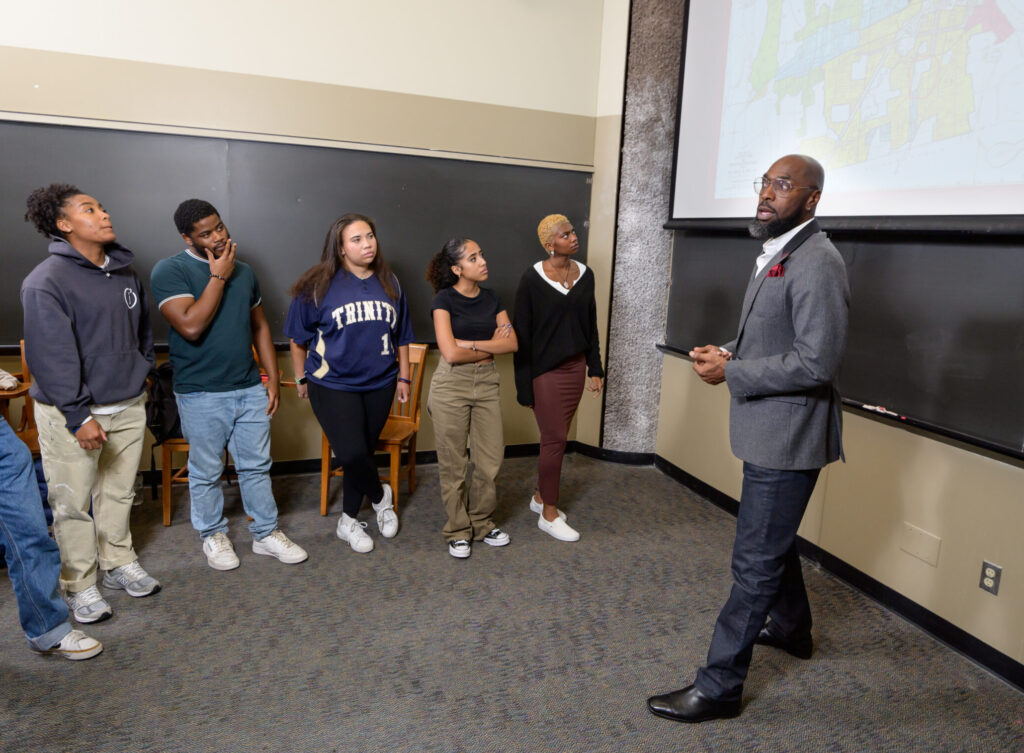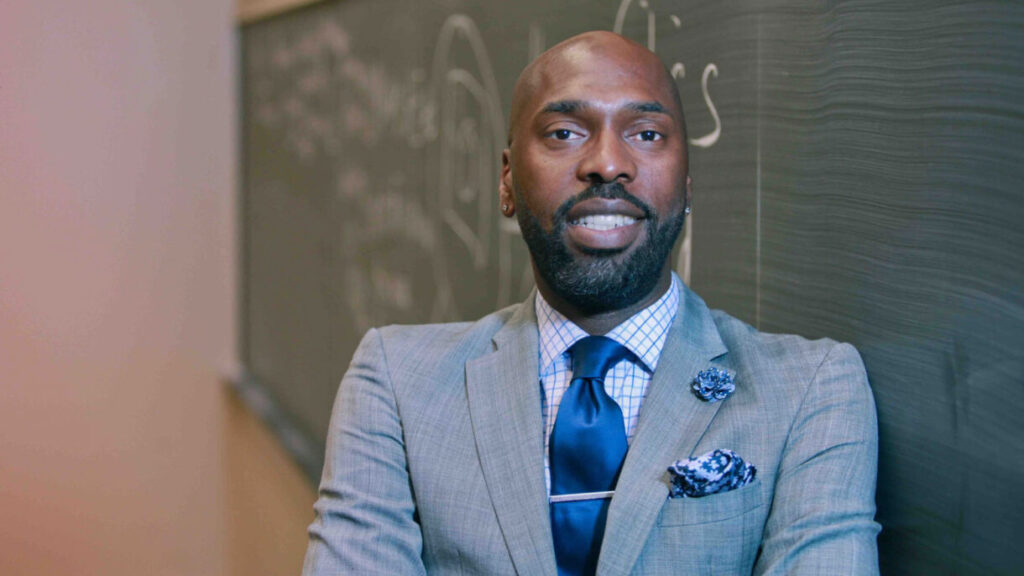Grant Supports Lab’s Work to Build Equitable Urban Communities
A grant from the Marguerite Casey Foundation will help support the economic and social responsibility work of the Smart Cities Research Lab, led by Davarian L. Baldwin, Paul E. Raether Distinguished Professor of American Studies at Trinity College.
Baldwin, author of In the Shadow of the Ivory Tower: How Universities are Plundering Our Cities, founded the Smart Cities Research Lab in 2021 with a focus on research, but its work began to branch out into advocacy in the wake of summer 2020.
“After George Floyd and Breonna Taylor were killed and community groups saw the work I was doing with my book and how the lab was an extension of that, they said, ‘We need you to get out in these streets and support our communities,’” said Baldwin.

Housed within the Trinity Social Justice Institute (TSJI), the Smart Cities Research Lab studies and consults on best practices for building equitable urban communities. One part of the lab’s work is focused on the fact that universities are nonprofits, meaning their property is primarily tax-exempt, Baldwin said. “Many times, this has an adverse effect on budgets of their host communities, because property taxes help fund city budgets, including public schools and public infrastructure,” he said.
The lab is leading a series of nationwide Payments in Lieu of Taxes (PILOT) campaigns that push nonprofits—especially colleges, universities, and their medical centers—to contribute to municipal budgets.
In 2021, with support from Baldwin’s lab, organizers in New Haven helped secure a pledge from Yale University to increase the school’s voluntary payments to the city by $52 million over six years. The lab also is working with local politicians and community members around similar issues in Baltimore, St. Louis, Massachusetts, North Carolina, and even the Netherlands.
The grant comes from the Marguerite Casey Foundation’s Public Dollars for Public Good initiative. It will be broken up over a three-year period to fund administrative staff and student researchers, allowing Baldwin to spend more time working in the communities whose campaigns the lab supports. “It helps me put together convenings in these spaces, so the organizations and stakeholders can come together for equitable and racially-just development going forward,” Baldwin said. “Our campaigns are an effort to reroute public dollars back to the public. The Marguerite Casey Foundation saw this as a direct reflection of the kind of work they want to support.”
The Smart Cities Research Lab also studies topics related directly to the courses that Baldwin teaches at Trinity and provides training and research experience to students. Among Baldwin’s Trinity former students are a graduate student in Berlin, Germany, an urban planner who received an advanced degree at UC Berkeley, and two others who worked in the New York City Department of Education.

Baldwin views his work as a way to help colleges, universities, and other institutions truly benefit the greater good. “What we’re doing with the lab and this particular campaign is making sure that the missions and the efforts of the institutions measure up to their daily actions,” he said. “The lab is an effort to go from just simply research to action.
“To its credit, Trinity—from the president on down—has been extremely supportive of this work,” Baldwin added. “In the true spirit of academic freedom and social inquiry, this is an institution that is open to letting scholars like myself follow our work to its logical conclusion, even if that points a critical eye at the institution.”
In addition to awarding the grant, the Marguerite Casey Foundation named Baldwin a Freedom Scholar in 2022, and Baldwin previously served as a Public Dollars for Public Good advisor for the foundation.
“In the kind of work I do—which is academic but also advocacy—it can be very difficult to get support,” said Baldwin. “It means a lot that there are these kinds of funders that support work that fits in a hybrid space.”
The mission of the Marguerite Casey Foundation is to work “toward a country where our government prioritizes the needs of excluded and underrepresented people, families, and communities.” According to the foundation, “Public Dollars for Public Good grant recipients are organizing communities and unlocking federal funds to help us all reimagine what our world could be like by demanding our public dollars ensure everyone gets to live a good life.”
